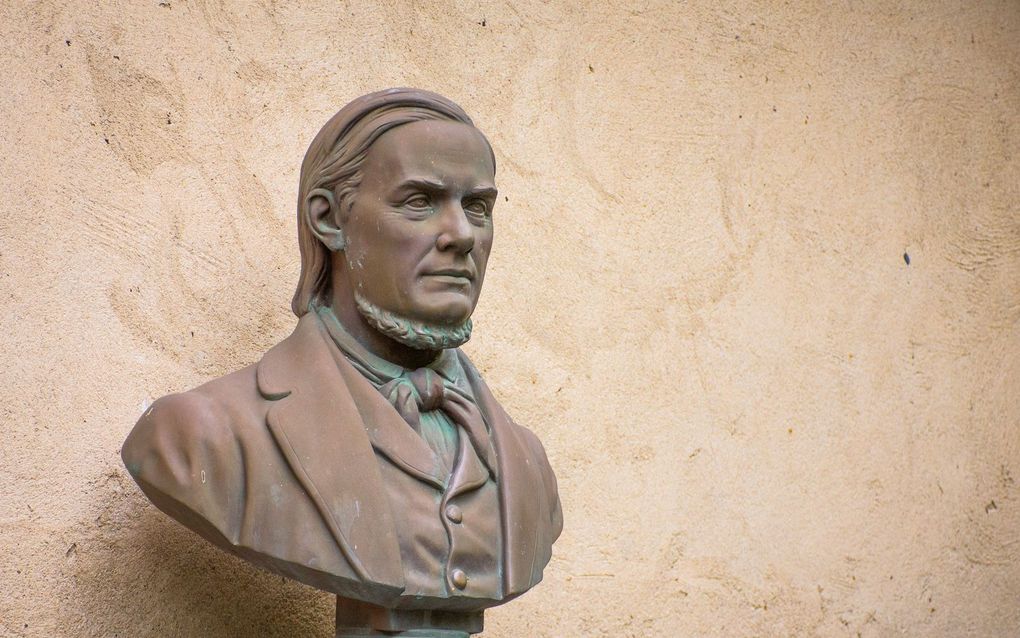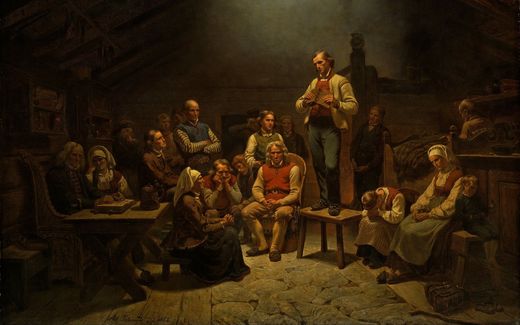Norway remembers Hans Nielsen Hauge, the evangelist who brought innovation

Sculpture of Hans Nielsen Hauge. Photo Flickr, James Walsh
Northern Europe
In Norway, many streets and squares are named after Hans Nielsen Hauge. The evangelist is part of the national heritage. Today, many Christians remember the 200th death anniversary. Cédric Placentino reflects on his historical meaning.
"Follow Jesus! O, You are the eternal loving God!" These were the last words Hans Nielsen Hauge said on his deathbed on the 29th of March 1824. Outside Scandinavia, Hauge (1771-1824) is not well known. Even in Norway, the country of his origin, his memory is slowly fading despite his work's deep impact.
The impact is difficult to miss. Today, Norway is one of the wealthiest nations in the world. Its average income is among the highest in the world. Norway ranks seventh in the 2024 World Happiness Report and first in the freedom of the press.
It is no surprise to say that Norway is rich today. Yet it was one of the poorest countries in Europe in Hauge's days. How could such a dramatic transformation happen in such a short time?

Greatness
The discovery of oil and gas cannot explain the country's greatness. Its origin lies in Christianity. Historians agree that Hauge had a decisive impact on developing the country's life standards. The 200th anniversary of his death is thus an excellent opportunity to rediscover Hauge.
The small village of Tune (today part of Rolvsøy) in Southern Norway is an excellent place to start. On the village's prayer house wall, we can find a plaque with the following words: "Myself and what is mine, will I gladly surrender, if You alone will dwell in my soul.”
Hauge was born in Tune on the 3rd of April 1771. He pronounced this sentence on the site of the prayer house two days after his 25th birthday. There, he experienced what he later described as "a spiritual breakthrough." While ploughing one of his father's fields, his "soul felt something supernatural, divine, and blessed". He felt "a glory that no tongue can describe". This experience led Hauge to receive a renewed mind and heart "filled with a passionate desire to read the Bible and Jesus's teaching".
On the same day of his encounter, he spoke to his family. Two of his siblings were converted after this. The supernatural experience in 1796 turned Hauge's life around. He consecrated himself to call his people to repentance and faith in Jesus Christ.

Soon, Hauge began to travel across the country. In fact, he preached to nearly every district. Hauge is believed to have covered over 15,000 kilometres within eight years, mainly on foot.
Hauge was not welcomed by everybody. In fact, he met strong opposition. At the time, lay preaching and unofficial Christian gatherings were illegal. But he ignored these laws and was thus confronted by the bishops. God gave him the wisdom to respond appropriately, but the church nonetheless asked him to arrest him.
Within eighteen years from 1796, Hauge was arrested eleven times. His longest imprisonment lasted ten years, and the conditions of his seclusion were sometimes dire. But despite such opposition, Hauge did not stop preaching. He said, "If I had 100 lives, they would all be willing to welcome chains."
Drunkenness
So, how did Hauge's revival have an impact on Norwegian society?
Hauge's preaching was not limited to offering an entry to heaven. Hauge believed that the renewal of the mind should lead to changes in everyday life. The believer should be "God's child in all necessary tasks". Therefore, the Haugian revival had a transformative effect in the economic, political and educational spheres. This could be seen, for example, in the decrease of drunkenness wherever the revival spread.
Hauge is best known for the impact he had on the Norwegian economy. He often shared practical advice about farming or even business ideas among the people he preached to. Hauge himself started many businesses, including a shipping company, two paper factories, a brick company, a printing company and several mills.
The Haugian movement became known for innovation in farming and business. Hans Nielsen Hauge also contributed to the growth of literacy. He wrote seventeen books which were widely read. Some accounts estimate that at least one Norwegian out of nine read his work. His writings inspired many to read and study themselves. Hauge was also concerned with education and contributed financially to founding the first Norwegian university (Christiania, which is modern-day Oslo).
Missionaries
Hans Nielsen Hauge's legacy was wider than Norway, though. The Haugian revival gave birth to a powerful and lasting missionary movement. Even in the first half of the twentieth century, Norway sent more missionaries per capita around the world than any other nation.
The years of opposition and imprisonment took a toll on his health. Nonetheless, he continued to preach the Gospel whenever he could. Toward the end of his life, when he was seriously ill, a group of people came to visit him. Despite spending much of his time in bed, Hauge still found the strength to preach to them. A few weeks later, just five days before his 53rd birthday, Hans Nielsen Hauge passed away.
All historians have recognised the impact that Hans Nielsen Hauge had in Norway. The Norwegians' prosperity can be traced back to the work God did through Hauge. His last words summarise his thoughts. His call to follow Jesus, the eternal loving God, transformed an entire nation.
Related Articles









